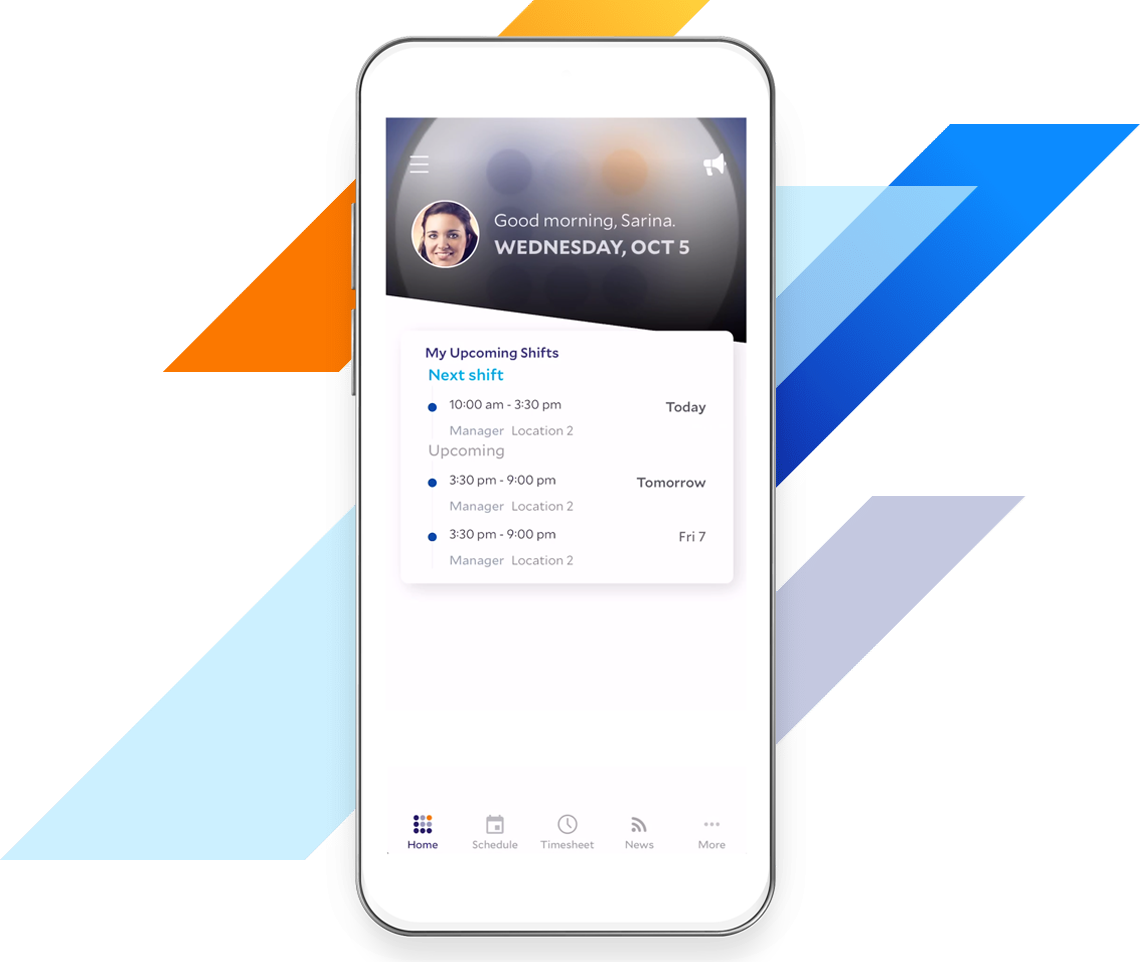Labor Compliance in the Age of AI: What HR Needs to Know
August 31, 2023
by Malysa O’Connor

HR leaders manage complex rules and policies in today’s rapidly evolving compliance landscape. However, many struggle to navigate these complex waters using legacy workforce management (WFM) solutions, making it even more challenging. This article will explore the difficulties of leveraging legacy WFM tools, the potential repercussions for businesses, and the advantages of transitioning to modern, AI-powered WFM systems that enable intelligent automation to minimize compliance risk.
Challenges
Using outdated technology to bridge gaps in software capabilities—such as manual workarounds—can lead to several challenges. Some of these challenges include:
- Limited Flexibility: Legacy WFM systems often lack the flexibility to adapt to new compliance requirements. As regulations change, businesses must be able to adjust to them quickly. Unfortunately, traditional methods don’t always provide this level of agility, causing HR leaders to resort to manual workarounds or engagements with costly service providers.
- Inefficiencies and Errors: These older systems frequently lack intuitive interfaces, leading to inefficiencies and a higher risk of manual input errors that even the most vigilant HR professionals can make, leading to costly mistakes.
- Insufficient Reporting Capabilities: Ensuring compliance means retailers need robust reporting tools. Traditional WFM solutions often need to catch up to evolving rules and offer basic reporting that doesn’t meet the complex needs of today’s businesses.
Potential Impacts of Legacy WFM
Many potential issues can result from outdated processes and technology, including financial, operational, and reputational damage.
- Financial Repercussions: Non-compliance can lead to substantial fines and penalties. Depending on the violation, a single oversight or error can cost a company upwards of thousands of dollars. For companies of scale, this could even rise to millions. In 2022, the retail industry paid more than $7.4M, and the food service industry paid more than $27.1M in employee back wages.
- Operational Inefficiencies: As HR teams spend disproportionate amounts of time managing and getting around the limitations of legacy systems, they have less time for strategic activities. This leads to a reactive rather than proactive approach to HR management. At the store level, managers often spend hours each week reviewing and finalizing timesheets and schedules, checking for errors, or applying changes.
- Negative Impacts to Your Brand: Companies that fail to meet compliance standards risk damaging their reputation. In today’s information age, news about non-compliance spreads fast, potentially leading to lost business opportunities and mistrust among clients and partners.
AI-Powered WFM is Changing the Game in Managing Compliance
Artificial Intelligence (AI) is redefining the boundaries of workforce management, especially when navigating and applying the intricacies of compliance policies and laws. A few examples of AI’s power to manage these challenges include:
- Proactive Compliance Management: AI systems can help predict potential compliance issues before they arise by analyzing patterns and trends. And through features such as automated compliance alerts, HR teams can be notified immediately of any situations that might lead to a violation, such as excessive overtime, missed breaks, or payroll discrepancies, so they can manage issues before they become real problems.
- Automated Tasks: Routine tasks like data entry or schedule generation can be automated, ensuring processes keep to compliance rules without manual work. This reduces the risk of errors and frees up HR professionals and store-level managers to focus on more important matters.
- Predictive Analysis for Compliance: AI can use historical data to forecast potential compliance challenges. For example, it might predict periods of understaffing or overworking. AI’s compliance reports are comprehensive, providing insights into potential risk areas and allowing time for a proactive approach. It can highlight trends and pinpoint areas of concern, making audits smoother and more transparent.
- Real-time Data Analysis: One of the greatest benefits of AI is its ability to continuously learn and adapt over time. AI-powered WFM systems can adjust as compliance requirements evolve without requiring complete overhauls or significant human intervention. AI-driven software can also analyze employee data in real-time to ensure all activities fall within compliance guidelines. This is particularly useful in ensuring fair work schedules, wage law adherence, and preventing discriminatory hiring practices.
- Cost Savings: Businesses can save significantly by reducing manual errors, automating tasks, and preventing potential non-compliance issues. And, even better, the efficiency gains from intelligent automation enabled by modern WFM tools means HR teams can accomplish more with fewer resources.
- Seamless Integration: Modern AI-powered WFM solutions are designed to integrate effortlessly with other business tools. This ensures that data flows freely and accurately across platforms, with no manual inputs required, minimizing errors and streamlining processes.
Benefits of AI in Managing Compliance
Legion WFM enables intelligent automation to manage compliance across all jurisdictions. Predictive scheduling and labor laws are automatically applied to the schedule, so managers are instantly warned if their actions or edits introduce risk or violate rules. Time and attendance tracking automatically incorporates compliance rules while computing premium pay.
With advanced AI and machine learning, you can rely on Legion WFM to automatically ease your burdens with compliance management, attestation, and full audit capabilities.
Forrester Research interviewed Legion customers for a recent study and uncovered the value that modern workforce management solutions bring to retailers. For example:
- An Executive Director of Information Systems at one large retailer said, “Every organization has their own definition of what compliance is and what those rules are, such as ‘I only want to use 10 percent of overtime’ or something like that. Legion allows us to lock in all those rules within the system, which constantly keeps us in compliance.”
- The Director of Human Resources at another major retail organization found a 10% reduction in overtime pay. They got proactive visibility into staffing needs from improved forecasting and the automated compliance rules in Legion WFM. They summarized the benefits they achieved by saying:
“We’ve definitely had a reduction in overtime, especially in California with double time. Because of the compliance flags built into the Legion scheduling tool, a manager can see if they’ve scheduled someone in California for more than eight hours, for example, and they can reduce that shift and add that half hour somewhere else. Managers and payroll really have more control and oversight into adjusting the workforce.”
- An Operations Leader at one retailer shared that they had achieved “millions in savings” from avoiding premium fees due to Legion WFM capabilities. “Legion reacts quickly to the onslaught of legislation being passed for workforce compliance. They are doing a great job of keeping up, and our previous solution did not even come close,” said the Director of Store Operations.
The compliance management landscape with legacy WFM systems is challenging and often even more daunting. Learn more about how intelligently automated WFM technology powered by AI can help your business stay ahead of the curve.
